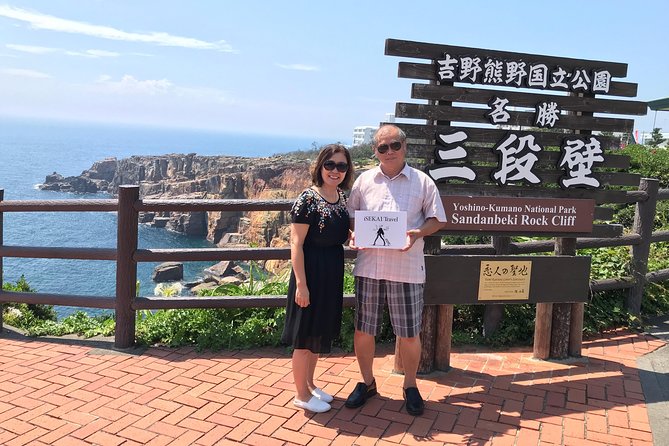Enjoy the tranquility of a traditional Japanese tea ceremony at a 90-minute Tea Ceremony Workshop in Tokyo.
Led by a licensed instructor from the renowned Urasenke Chado School, you will learn the art of preparing matcha tea and sample various types of tea and Japanese confectionery.
This hands-on experience offers a deeper understanding of Japanese traditions and a chance to connect with the mindfulness and spirituality of tea-making.
Don’t miss this unique and educational opportunity to explore Japanese culture in an authentic tea room setting.
Great News! You can reserve your spot for free with Viator. You can easliy cancel any time up to 1 day before without paying anything.
Quick Takeaways
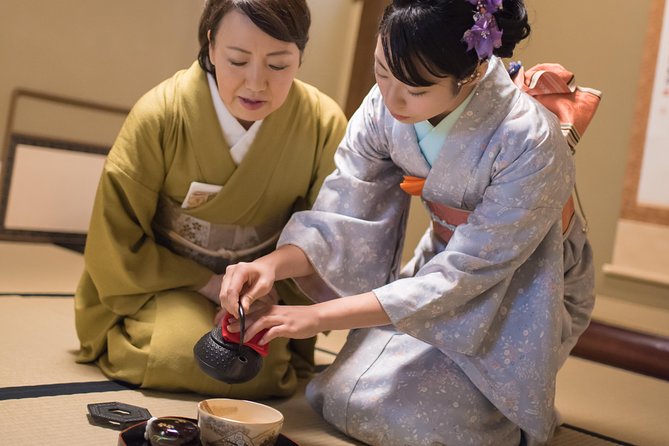
- Participants learn the ancient zen tea ceremony practice of Chado, which combines mindfulness with the spiritual tea-making process.
- The workshop takes place in an authentic tearoom with tatami mats and includes a cup of cherry-blossom tea, two kinds of matcha tea, and three kinds of Japanese confections.
- Participants have the opportunity to practice serving tea as both a host and a guest, guided by an instructor from a licensed school in Kyoto.
- The tea ceremony workshop provides a peaceful and relaxing atmosphere, allowing participants to appreciate the history and cultural significance of the tea ceremony while enjoying traditional Japanese sweets.
Not for you? Here's a few more great tours and experiences nearby.
The Origins of Chado: Exploring the Ancient Zen Tea Ceremony
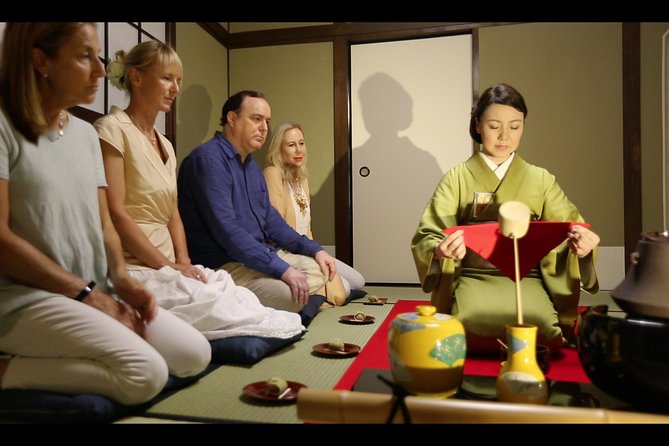
Chado, the ancient zen tea ceremony, has its origins dating back several centuries. This traditional Japanese practice holds historical significance and is deeply rooted in cultural influences.
The origins of chado can be traced to the 9th century, when tea was introduced to Japan from China. However, it was during the 16th century that the tea ceremony evolved into a formalized ritual, known as chado.
The historical significance of chado lies in its connection to Zen Buddhism and the principles of mindfulness and simplicity. The tea ceremony became a way for practitioners to cultivate inner peace and find harmony with nature.
Over the centuries, chado has been influenced by various cultural elements, such as the aesthetics of the tea room, the art of flower arrangement (ikebana), and the appreciation of ceramics.
Today, chado continues to be celebrated as a treasured cultural practice in Japan, showcasing the country’s rich history and traditions.
You can also read our reviews of more tours and experiences in Asakusa.
Immerse Yourself in Japanese Culture: A Unique Tea Ceremony Experience
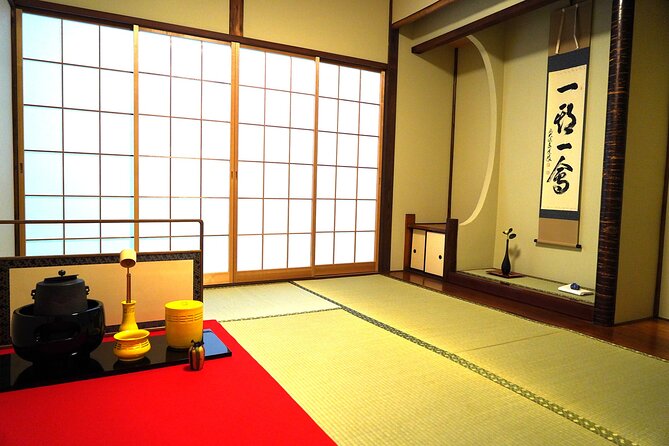
Participants can fully enjoy Japanese culture by experiencing a unique tea ceremony that offers a memorable way to learn about the country’s traditions. The tea ceremony, also known as Chado, is an ancient zen practice that combines mindfulness with the art of tea-making.
In this workshop, participants have the opportunity to learn the tea ceremony etiquette and the significance of mindfulness in tea making. The workshop takes place in an authentic tearoom with tatami mats, creating an immersive atmosphere. Participants not only learn to prepare a bowl of matcha tea but also sample different types of tea and Japanese confectionery.
Led by an instructor licensed by the Urasenke Chado School in Kyoto, participants practice serving tea as both a host and guest. This experience provides a peaceful and relaxing atmosphere, allowing participants to appreciate the history and cultural significance of the tea ceremony.
It’s a truly unique and informative session that offers a memorable way to end the time in Tokyo.
Discover the Authentic Tea Room: A Tranquil Setting for the Workshop
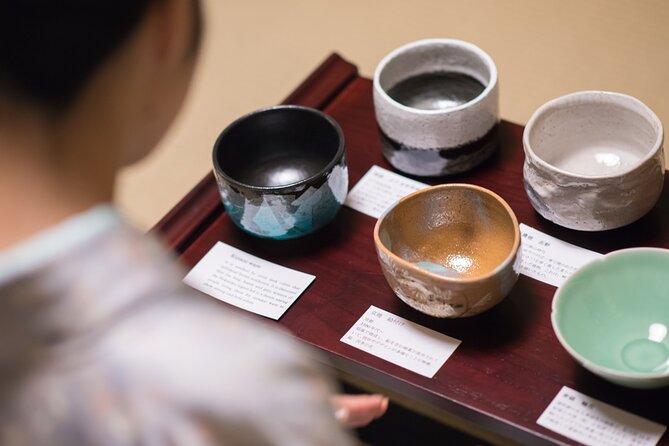
Visitors to the workshop can discover the tranquil setting of the authentic tea room, where they can fully enjoy the peaceful ambiance.
The serene tea room serves as a place of tranquility and mindfulness, providing the perfect environment for participants to explore the art of tea and delve into the rituals and techniques of the tea ceremony.
Led by an experienced instructor from a licensed school, participants have the opportunity to learn the ancient practice of Chado, a zen tea ceremony that combines mindfulness with the spiritual tea-making process.
During the workshop, participants won’t only learn to prepare a bowl of matcha tea but also sample multiple types of tea and traditional Japanese confectionery.
The tea room, with its tatami mats and authentic decor, creates an authentic and immersive experience, allowing participants to truly appreciate the cultural significance and history of the tea ceremony.
Mastering the Art of Tea: Learning From a Licensed Instructor
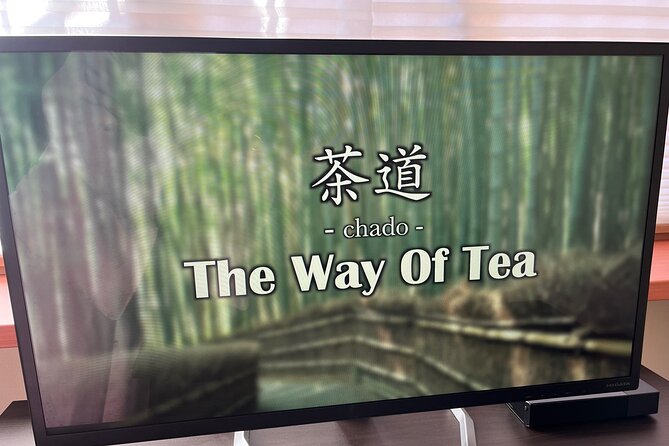
The licensed instructor guides students in mastering the art of tea, emphasizing the importance of mindfulness and technique.
Benefits of mindfulness in tea making:
- Cultivates a state of presence and awareness
- Promotes relaxation and stress reduction
- Enhances the sensory experience of tea
Techniques for serving tea as a host and guest:
- Properly preparing and presenting the tea utensils
- Mastering graceful and precise movements
- Understanding the significance of each step in the tea ceremony
By practicing mindfulness, participants can fully enjoy the tea-making process, savoring each moment and appreciating the beauty of the ceremony.
The techniques learned enable them to serve tea with grace and respect, whether as a host or guest. The instructor’s guidance ensures that students gain a deep understanding of the cultural and historical significance of the tea ceremony.
Through this workshop, participants not only learn the art of tea, but also cultivate mindfulness and a deeper connection to Japanese culture.
Indulge in the Flavors of Japan: Sampling Multiple Types of Tea and Confections
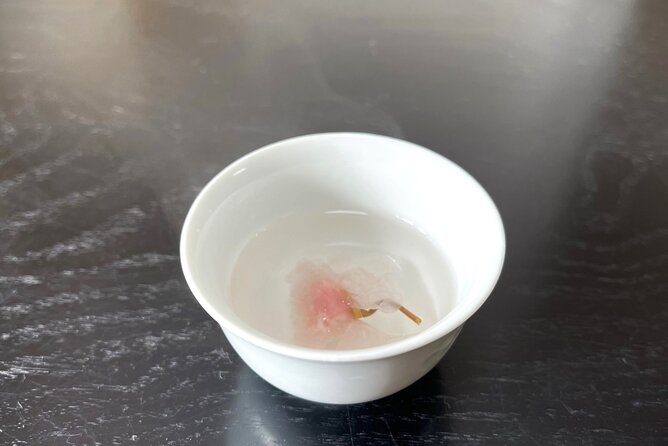
There are various delicious Japanese teas and confections available for sampling during the workshop, allowing participants to indulge in the flavors of Japan.
The tea ceremony workshop offers a unique opportunity for cultural appreciation as participants enjoy the art of Chado, an ancient zen tea ceremony practice. Held in an authentic tearoom with tatami mats, the workshop provides a peaceful and relaxing atmosphere.
Participants not only learn to prepare a bowl of matcha tea but also sample different types of tea and Japanese confections.
Led by an instructor from a licensed school in Kyoto, participants gain a deeper understanding of the history and cultural significance of the tea ceremony.
It’s a memorable way to experience Japanese traditions and savor the delights of tea and confections in a tranquil setting.
- Tokyo Asakusa Rickshaw Tour
- Official Street Go-Kart Tour in Asakusa
- Tea Ceremony and Kimono Experience Tokyo Maikoya
- Top 10 Tokyo Highlights & Hidden Gems: Private Custom Tour
- [30 Minutes] Asakusa Ancient Trip Plan by Rickshaw Tour of Tokyo Sky Tree
- Family and Beginner Friendly Origami Experience in Asakusa
Practical Information and Logistics: Everything You Need to Know Before Attending the Workshop
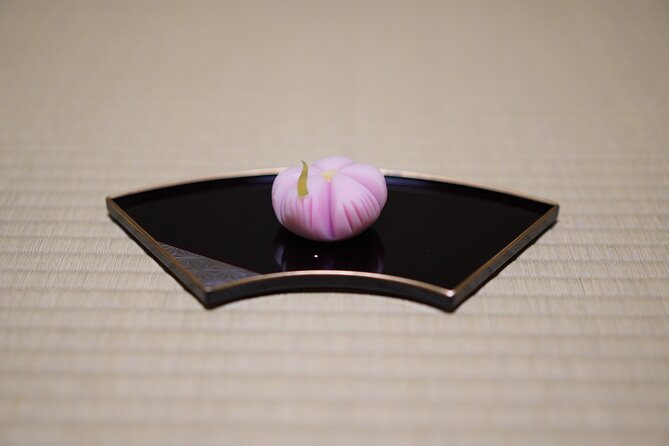
Providing essential details and guidance, the workshop’s practical information and logistics present everything visitors need to know before attending.
- Tea Ceremony Etiquette
- Participants learn the proper way to conduct themselves during a tea ceremony, including bowing and sitting positions.
- They discover the importance of mindfulness and focus during the tea-making process.
- Participants gain an understanding of the cultural significance of the tea ceremony in Japan.
- Cultural Significance of Tea Ceremony
- The tea ceremony, known as Chado, is an ancient practice that combines Zen philosophy with the art of tea-making.
- It’s a way to appreciate simplicity, harmony, and tranquility.
- The ceremony represents a connection between the host and your, fostering a sense of unity and respect.
By understanding tea ceremony etiquette and the cultural significance of the practice, participants can fully enjoy the experience and gain a deeper appreciation for Japanese culture.
The workshop’s practical information and logistics ensure that visitors are well-prepared and can make the most of their time in the authentic tearoom.
Frequently Asked Questions
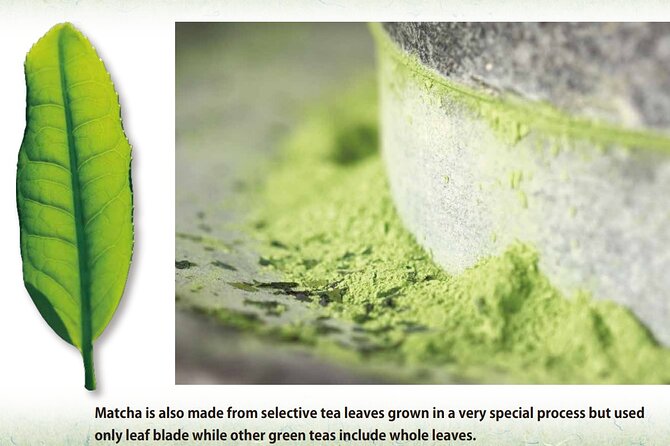
Can Children Under the Age of 10 Participate in the Tea Ceremony Workshop?
Children under the age of 10 cannot participate in the tea ceremony workshop. The workshop is available for participants 10 years old and above. Age restrictions ensure a safe and appropriate learning environment for all participants.
Is It Mandatory to Sit in the Traditional Seiza Style During the Workshop?
No, it is not mandatory to sit in the traditional seiza style during the workshop. Participants can sit comfortably on tatami mats with socks. The focus is on learning meditation techniques and tea ceremony etiquette.
What Is the Maximum Weight Capacity in the Tea Room?
The tea room has a maximum weight capacity for safety reasons. It is important to adhere to this tea room weight limit to ensure a comfortable and secure experience during the tea ceremony workshop.
Are Pregnant Travelers Allowed to Participate in the Workshop?
Pregnant travelers should refrain from participating in the tea ceremony workshop. While it offers a unique cultural experience, it is not recommended for individuals with serious medical conditions such as pregnancy.
Are There Any Medical Conditions That Would Prevent Someone From Attending the Tea Ceremony Workshop?
The tea ceremony workshop is not recommended for individuals with back problems, pregnant travelers, or those with heart problems or serious medical conditions. Safety precautions and the well-being of participants are prioritized.
The Sum Up
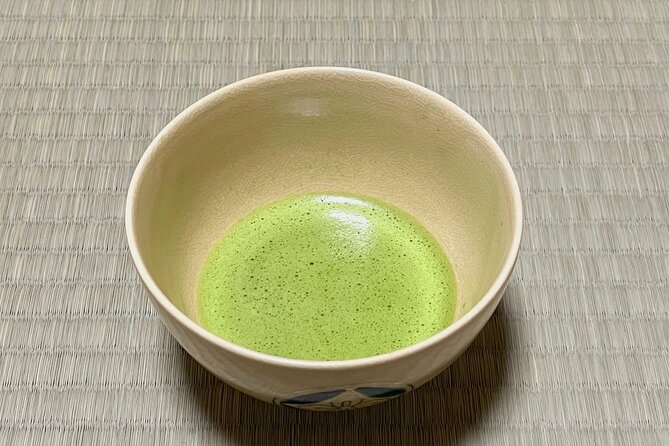
To sum it up, the 90-minute Tea Ceremony Workshop offers a unique and immersive cultural experience in the heart of Tokyo. Participants have the opportunity to learn from a licensed instructor from the renowned Urasenke Chado School in Kyoto, ensuring an authentic and informative session.
With its tranquil ambiance, historical significance, and hands-on activities, this workshop is a perfect way to deepen one’s understanding of Japanese traditions and make lasting memories in Tokyo.
Don’t miss out on this unforgettable tea ceremony experience.
More Tour Reviews in Asakusa
Not for you? Here's more nearby things to do in Asakusa we have reviewed
- Samurai Sword Experience in Asakusa Tokyo
- Private Professional Photoshoot in Tokyo
- 1-Hour Audio Guided Tour in Asakusa Tokyo
- Japanese Papier-Mâché Painting Experience in Taito
- Shodō Creative Japanese Calligraphy Experience
- Private Tokyo Tour With a Japanese Guide
- Art Japanese Fan Crafting Experience in Tokyo Asakusa
- 45 Minutes Taisho Art Class and Live Performance in Asakusa Tokyo
- Art Calligraphy – Write Your Aspirations for 2024 With Colours
- Koto Is a Traditional Japanese Instrument.
- Asakusa Sweets Walking Tour With Japanese Sweets Researcher
- Tokyo Asakusa Tour and Shrine Maiden Ceremonial Dance Experience

